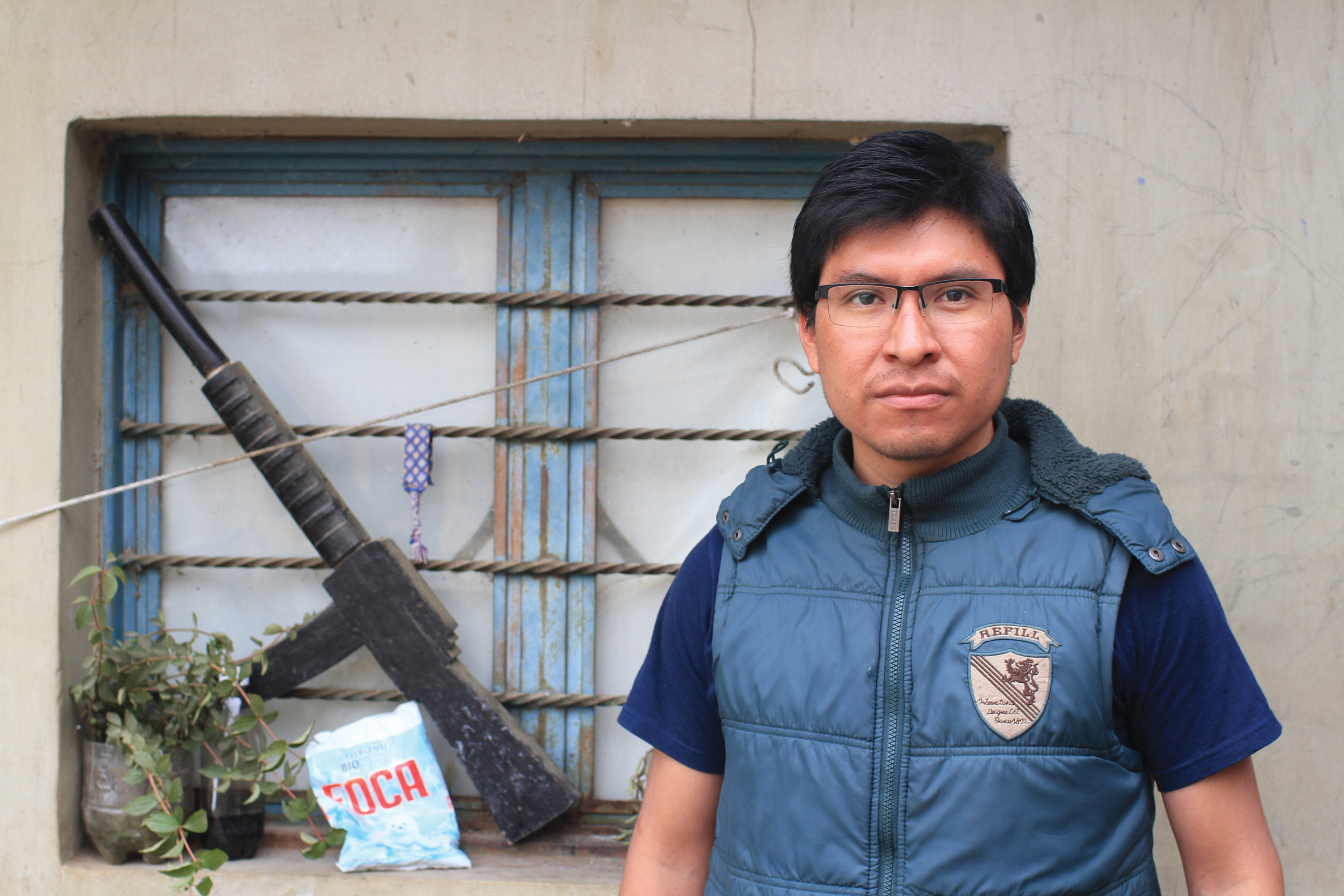The fog suffocates the heart of Mexico’s coffee country as Juan Carlos Lopez’s beat-up old Nissan sedan wheezes up the hill. The speedometer’s needle shakes, and the motor gasps and rattles, struggling to pull the car up through a series of steep, tight curves. We pass a military base and the local headquarters of the Zapatistas, a Mexican separatist group. Juan Carlos grits his teeth and scans for movement in the thick blanket of haze. He is trying to predict the flash of gunfire, bracing for an attack. “I’m really scared,” he hisses.
A few days earlier, gunmen ambushed Juan Carlos while he was bringing bags of freshly picked coffee cherries in from his family’s farm. He saw the bullets shatter the windshield. He knows that every time he leaves home to make a delivery he faces the possibility of death. Bringing his coffee to market is always a challenge. The threat of violence is now just one more obstacle in his path.
Juan Carlos, 31, lives and works in the center of Mexico’s thriving high-end organic coffee export industry. While overall levels of coffee production are still higher in many other countries, like Brazil and Colombia, Mexico has become the world’s top producer of organic coffee. Juan Carlos grew up watching his parents dry coffee beans under the sun on the roof of their home before meticulously hand-sorting them according to quality, bean by bean. His home state, Chiapas, which abuts Mexico’s southern border with Guatemala, now produces around 30 percent of the country’s organic coffee yield. Together, in 2017, Chiapas’ disparate group of roughly 180,000 producers harvested more than 678 million pounds of coffee cherries. Juan Carlos hopes to bring a larger collective of growers together into his co-op, Guerrero Maya (“Mayan Warrior”), and find a way to charge more for their beans. That would also mean changing Mexico’s relationship to its own coffee, and to its indigenous populations.

(Photo: Nathaniel Parish Flannery)
So far the coffee boom hasn’t had much of an economic impact on the indigenous workers and small-scale growers. Chiapas is the poorest state in Mexico. Over half of its 5.4 million residents are scattered throughout a patchwork of tiny hamlets in the wide expanse of rugged, green hills that surrounds the narrow, cobblestone streets and red-tiled roofs in the town of San Cristóbal. Coffee producers in Chiapas cultivate a land area almost as big as the state of Rhode Island, but over 90 percent of the farms in the state are small—between 2.5 and 25 acres. More than 64 percent of Chiapas’ coffee farmers work plots of land that are smaller than 2.5 acres. For generations, most indigenous communities existed largely in isolation, planting tiny plots of coffee beans and interacting with outsiders only to sell their harvests to entrepreneurial “coyotes,” middlemen who aggregate beans and sell in bulk to retailers and roasters. They never developed their own brands or businesses.
Juan Carlos wants to overcome the distrust that has historically divided Chiapas’ mountain communities. If he can bring his neighbors together, he can expand his Guerrero Maya collective, and roast, grind, and market the coffee himself, allowing the collective to cut out the middlemen in order to sell directly to premium buyers. “If we get a deal with a supermarket for roasted and ground coffee, we’ll get better prices,” he says.
But Juan Carlos still must work constantly to bridge the immense cultural gap between the indigenous producer communities and the consumers in Mexico and abroad who drink high-end coffee, two groups that are divided by class and race and interact infrequently on a day-to-day basis. So far, Juan Carlos has struggled to woo buyers at the new generation of gourmet restaurants and coffee shops that are opening in San Cristóbal. Although he has made inroads with a few local upmarket roasters and restaurants, as well as small buyers in the United States and the Netherlands, he is still looking to build a larger portfolio of steady buyers in Chiapas, Mexico City, the U.S., and Europe.

At the end of my ride-along with Juan Carlos, we made it out of the fog and back to his family’s house, scared but safe. After his family continued to receive threats, however, he decided to abandon his farm and move his parents and siblings to a new neighborhood in San Cristóbal. He hasn’t been back to visit his land. He thinks the gunmen in his pueblo will harvest his coffee for themselves this year. “There is no justice in Chiapas,” he says.
Still, Juan Carlos remains confident. He’s been pushed off his family’s land for now, and has no plans to return. “We don’t want to return,” he says. “We’re very afraid.” Instead, he plans to acquire more machinery to roast and grind his co-op’s coffee, so it can bring larger quantities to new stores and coffee shops in Mexico—and perhaps also find new buyers abroad.
“It’ll be a good year for the co-op,” he says, “but for our family it’ll be tough.”





